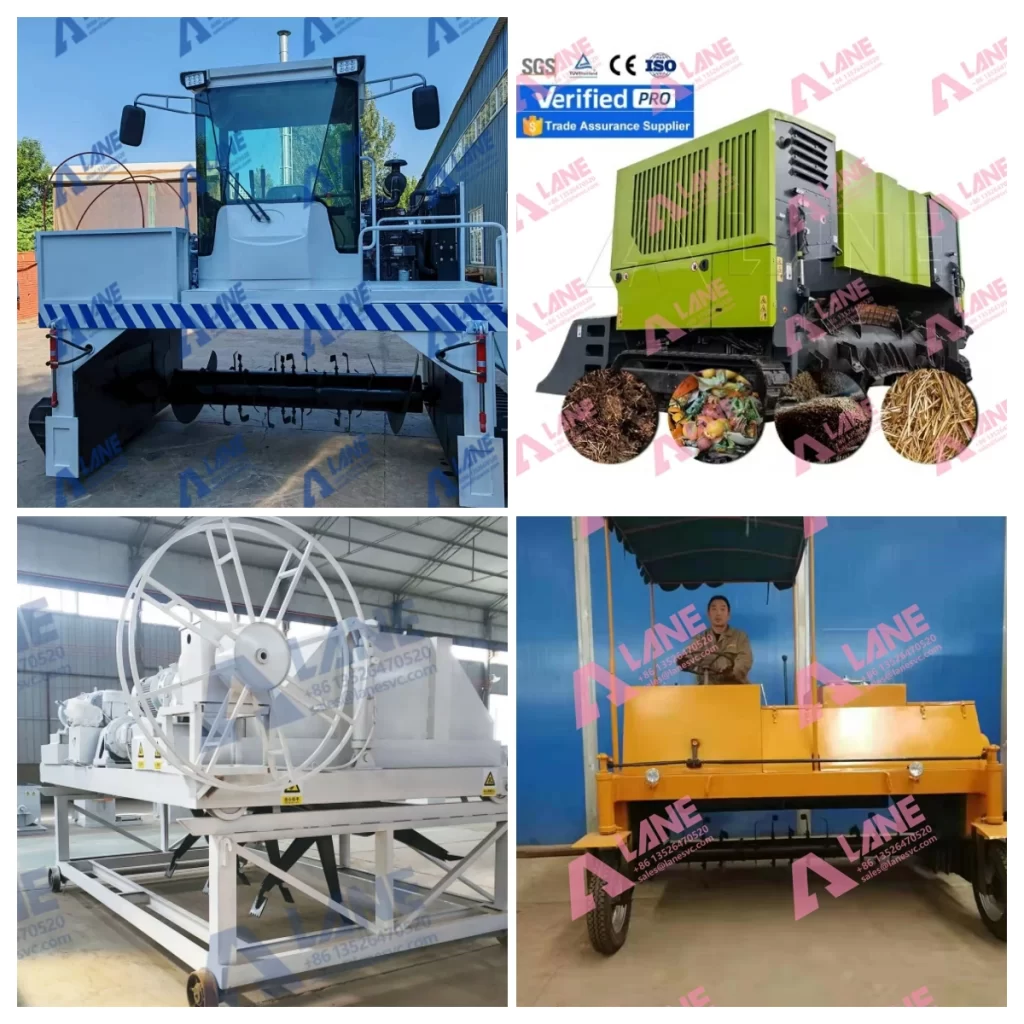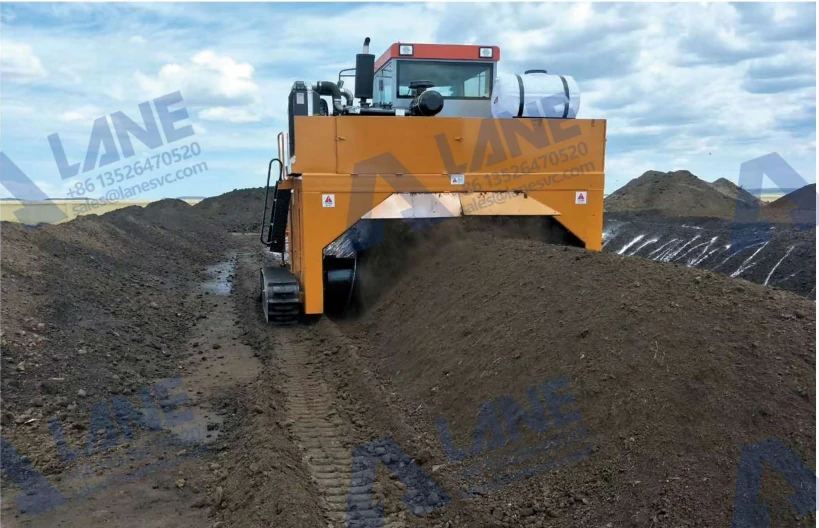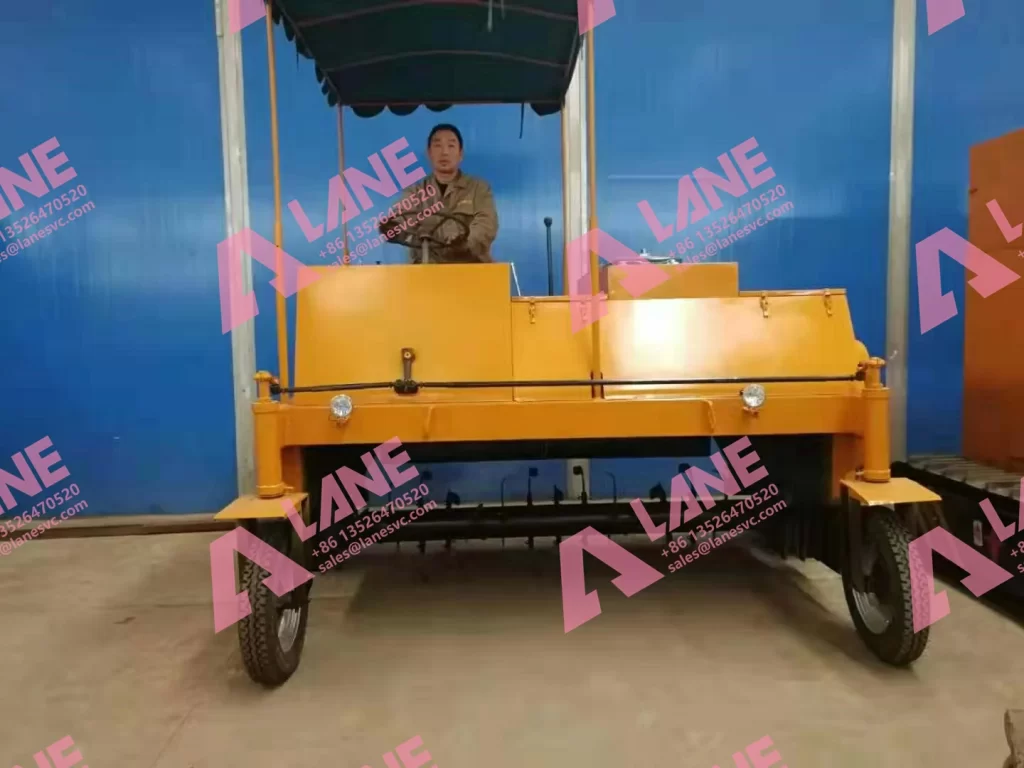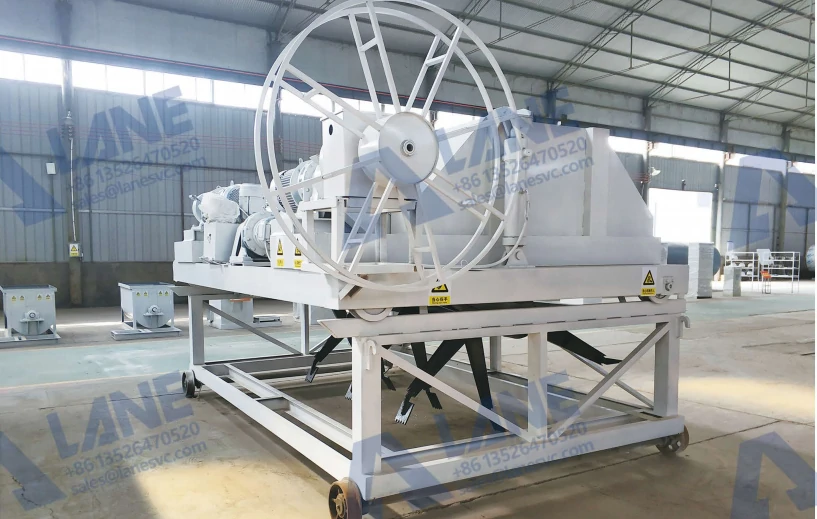The management of organic waste has become one of the most urgent tasks in modern agriculture and environmental protection. As a large amount of livestock manure, crop residues, urban sludge and kitchen waste are produced every day, efficient treatment methods are needed to prevent pollution and enhance sustainability.
An effective solution is composting, which breaks down organic matter into stable and nutrient-rich fertilizers. However, large-scale composting cannot be achieved solely by manual labor. It requires powerful machinery capable of handling large amounts of compost and operating in harsh conditions: heavy duty compost turner machine.
The heavy duty compost turner machine is specifically designed for large-scale and industrial composting projects. It ensures proper aeration, consistent temperature control, and efficient mixing, all of which are critical to successful compost production. For farms, cooperatives, and composting facilities processing thousands of tons of waste, this machine is not a luxury—it is a necessity.

Why a Heavy Duty Compost Turner Machine Is Needed
Large Volume of Waste: Farms with thousands of livestock produce tons of manure daily, which needs timely treatment.
Efficient Aeration: Composting requires oxygen; without proper turning, piles become anaerobic, producing odors and methane.
Uniform Fermentation: Manual methods often lead to uneven decomposition. Heavy duty turners maintain consistent quality.
Time Savings: Reduces composting time from months to weeks.
Environmental Protection: Prevents runoff, leaching, and air pollution associated with untreated organic waste.
Key Features of Heavy Duty Compost Turner Machines
Durability: Reinforced steel frames and wear-resistant components designed for continuous operation.
Strong Power Systems: High-torque diesel engines or electric motors capable of moving dense, wet compost.
Wide Processing Capacity: Machines can handle windrows up to 3–4 meters wide and 1.5–2 meters high.
High Efficiency: Capable of turning and mixing thousands of cubic meters per day.
Adaptability: Operates effectively in different conditions—open fields, compost sheds, or dedicated composting channels.
Types of Heavy Duty Compost Turner Machines
Different composting facilities require different designs, and the category of heavy duty compost turner machines has evolved to meet diverse needs. Instead of a one-size-fits-all solution, manufacturers have developed several models optimized for different scales, materials, and environments.
1.Crawler Type Compost Turners
These machines rely on strong crawler tracks to move steadily over compost piles. Their robust design and powerful turning drums make them ideal for outdoor windrow composting, where uneven ground and heavy manure are common challenges. They are often the first choice for large livestock farms.

2.Wheeled Type Compost Turners
Recognized by their massive wheels and wide turning spans, wheel-type machines dominate in industrial-scale operations. They can handle windrows that stretch several meters in width, making them efficient for facilities that process municipal organic waste or commercial compost production at scale.

3.Groove-Fermentation Turners
Instead of working in open fields, groove-type turners run on fixed rails over fermentation trenches. This enclosed method helps control odor, conserves space, and is well-suited for urban composting projects or fertilizer plants where land is limited.

Each of these heavy duty compost turner machines serves a distinct role. For facilities handling massive daily waste volumes, wheel-type or crawler-driven designs offer unmatched productivity. For space-conscious operations, groove fermentation systems are more suitable. Meanwhile, self-propelled compact turners provide an accessible entry point into mechanized composting.
Workflow of Composting with Heavy Duty Turners
A heavy duty compost turner machine plays a central role in a structured composting process:
Raw Material Collection
Livestock manure, crop residues, or municipal waste is gathered. Excess moisture is removed with an inclined dewatering machine.
Pile Formation
Materials are stacked into windrows or trenches with proper height and width for the machine model.
Turning and Aeration
The compost turner moves along the rows, mixing the material and introducing oxygen. Temperature and moisture are regulated naturally.
Fermentation Control
Regular turning maintains microbial activity. Within 20–30 days, raw waste is converted into semi-finished compost.
Post-Processing
Compost may be further crushed, screened, or granulated for use in an organic fertilizer production line.
Advantages of Using Heavy Duty Compost Turner Machines
Accelerated Composting: Reduces composting cycle time by 30–50%.
Improved Fertilizer Quality: Produces uniform, pathogen-free, and nutrient-rich compost.
Labor and Cost Savings: Replaces extensive manual labor, lowering operational costs.
Odor Control: Regular aeration prevents foul smells, making composting more community-friendly.
Versatile Applications: Suitable for manure, straw, sludge, and food waste.
Case Example: Poultry Farm in Thailand
A large poultry farm in Thailand struggled with manure disposal, facing environmental fines. By adopting a crawler type heavy duty compost turner machine, the farm converted waste into organic fertilizer in just 25 days. The fertilizer was then packaged and sold to local vegetable growers, turning a liability into an income stream.
Case Example: Municipal Composting in Brazil
In São Paulo, Brazil, a municipal waste management facility processes thousands of tons of organic waste each month. A wheel type heavy duty compost turner machine was installed to handle wide windrows. The facility now produces high-quality compost used in public parks and landscaping, reducing landfill loads and greenhouse gas emissions.
Future Outlook
The role of heavy duty compost turner machines will grow as sustainable waste management becomes a global priority. New designs are incorporating automation, GPS guidance, and IoT monitoring to track temperature, moisture, and oxygen levels in real time. Integration with renewable energy systems, such as solar-powered drives, is also on the horizon.
As global demand for organic fertilizers increases, heavy duty composting equipment will become central to both smallholder cooperatives and industrial-scale waste management plants.
The heavy duty compost turner machine is a cornerstone technology for large-scale composting. It transforms manure, crop residues, and other organic waste into valuable compost efficiently and sustainably. With various types—from crawler and wheel models to groove and self-propelled machines—there is a solution for every scale of operation.
By adopting this technology, farms and municipalities not only solve waste management problems but also create economic opportunities and contribute to environmental protection. Looking forward, the heavy duty compost turner machine will continue to evolve, making composting faster, smarter, and more sustainable for global agriculture.
For more details, please feel free to contact us.
Henan Lane Heavy Industry Machinery Technology Co., Ltd.
Email: sales@lanesvc.com
Contact number: +86 13526470520
Whatsapp: +86 13526470520